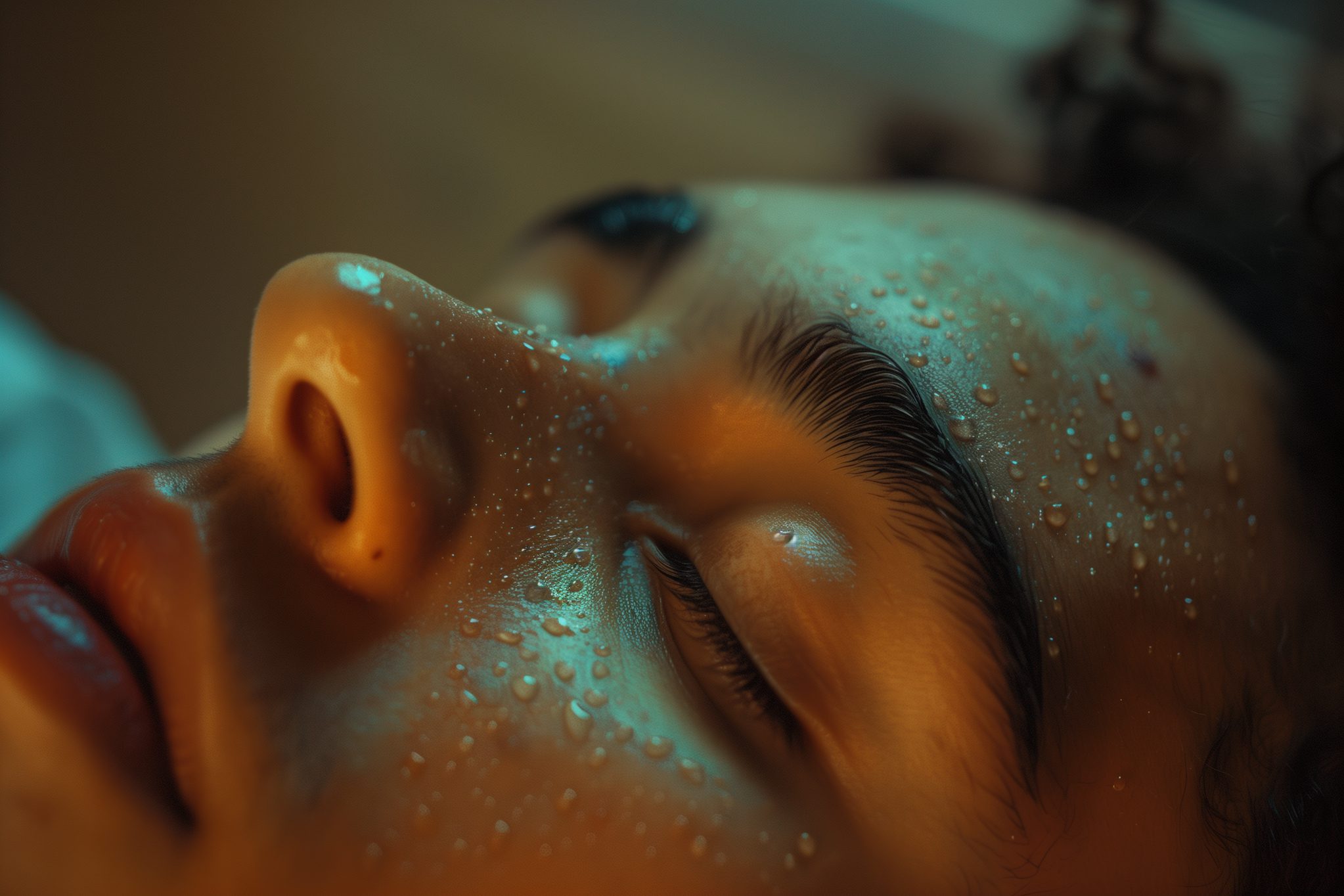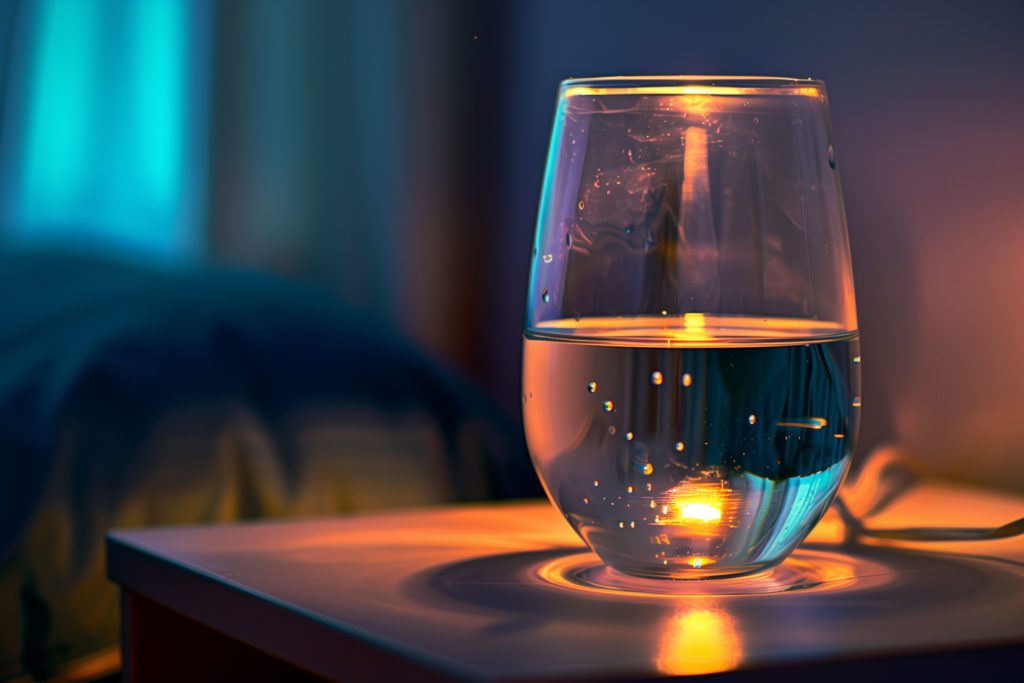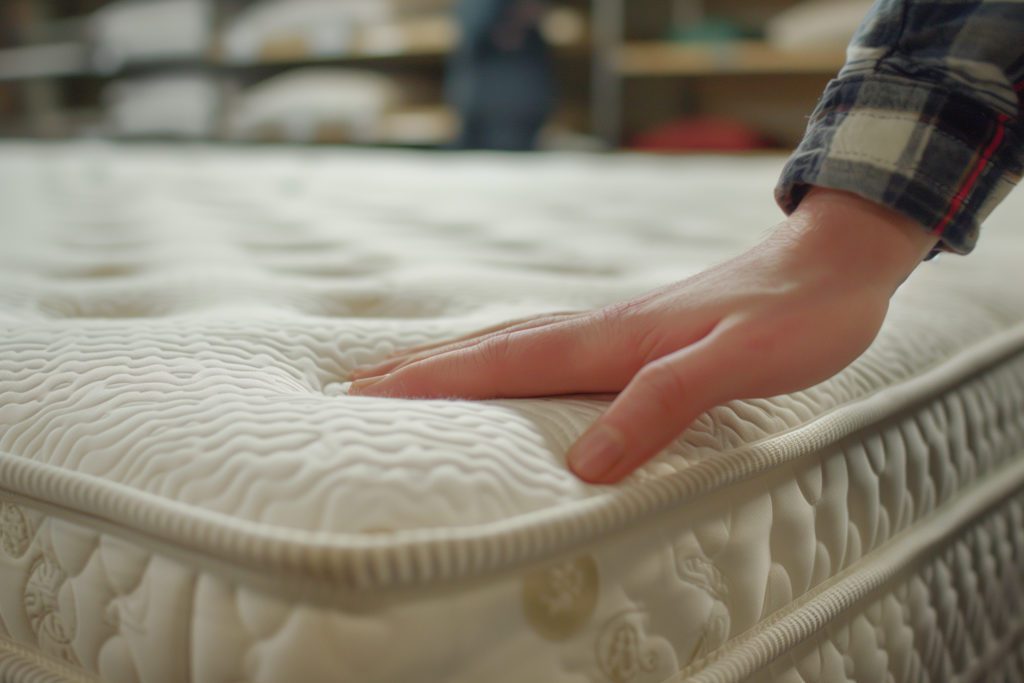
Why Do I Sweat in My Sleep? Exploring the Common and Uncommon Reasons
Your guide to understanding and managing night sweats. Learn about common and rare causes, plus practical tips for better sleep hygiene.

From Hormonal Imbalances to Environmental Factors: Unpicking the Causes of Night Sweats
When you wake up all sweaty in the night, it can feel a little disconcerting. Your night clothes and sheets are drenched, you’re overheating—or perhaps you feel shivery because of the moisture on your skin. Experiencing night sweats regularly is certainly not conducive to good sleep hygiene, so it’s a great idea to understand the reasons behind them and perhaps find ways of preventing them, for a better night’s sleep.
Night sweats can range from a mild inconvenience to a significant concern. In this article, we’ll look into the common and not-so-common reasons behind night sweats. From hormonal changes to environmental factors, understanding the causes is the first step towards finding solutions.
Understanding Night Sweats
Night sweats, or excessive sweating while we sleep, are not simply a case of feeling a bit hot during the night. Night sweats are when you’re sweating so much, your night clothes and bedding are soaking wet, even though your sleeping environment is cool. Often they're a sign from our body that something isn’t quite right, either internally or in our immediate environment.
Thermoregulation is our body's ability to maintain its core temperature, which during sleep is somewhere between 60 and 65 degrees Fahrenheit. But there are various factors that may cause this to go awry, leading to overheating in bed.
Common Causes of Night Sweats
Environment and Bedding
This is probably the most obvious cause of night sweats, and you’ll be pleased to know it’s easy to fix. Your sleeping environment plays a crucial role in your ability to thermoregulate. If your room is too warm, naturally you may start to sweat. It could be that your bedding isn’t breathable enough—man-made materials like polyester can trap heat close to the body. Opt for natural fabrics like bamboo or cotton for increased comfort through the night.
Also, are you lying on memory foam? While you may have picked out this type of mattress for its comfort, they’re known for holding in body heat, making you hotter (and potentially sweatier).
Infections and Illnesses
If you’re sick with a condition like the flu, your body temperature will likely be raised—this is part of your immune response that’s helping you fight the bug. Chronic infections, such as tuberculosis, lymphoma or HIV, can also cause night sweats as the body fights against the pathogens.
Hormonal Imbalances
If your body is experiencing hormonal fluctuations, this may be the cause of your night sweats. According to medical research, receiving too much or too little of hormones such as serotonin can result in flushing or sweating.
In addition, certain phases of our lives can cause hormonal imbalances. Women going through menopause might experience hot flashes that extend into the night, while teenagers might find themselves sweating for no apparent reason during puberty. These hormonal shifts upset the body's ability to thermoregulate, leading to those hot and sweaty nights.
Lifestyle Factors
Did you know your daily habits and choices could be contributing to your night sweats? If you’ve eaten a spicy curry, sipped a caffeinated drink, or had a puff on a nicotine-based vape before you go to bed, you’ll have stimulated your nervous system—which can increase your body temperature. Similarly, alcohol widens blood vessels, causing temporary warming and, as your body attempts to cool down, sweating.
Medications
Some prescription drugs, including antidepressants and hormone therapies, may cause night sweats as a possible side effect. These medications have the potential to disrupt your body's natural thermoregulation process or increase metabolic rate, both of which may lead to overheating during sleep.
Not-So-Common Causes of Night Sweats
Hyperhidrosis
This is the medical name for excessive sweating, and while it might be caused by one of the causes mentioned in this article, sometimes there is no obvious reason for it. It affects around 3% of the US population.
Sleep Disorders
Ideally, when you’re in deep sleep, your breathing will be slow and even. But when your slumber is disturbed by certain conditions like sleep apnea, where your breathing is irregular and troubled, your body is under stress from struggling to breathe properly. This may cause your heart rate and temperature to rise, causing sweating. Narcolepsy, too, can cause hot flashes where you may end up sweating.
Neurological Conditions
Diseases affecting the nervous system, such as Parkinson's disease or post-traumatic syringomyelia, can impair the body's ability to regulate temperature. This dysregulation can manifest as excessive sweating during the night.
Cancer
Night sweats are sometimes one of the first symptoms of certain types of cancer. The body's attempt to fight the cancer can cause temperature fluctuations, leading to sweating and hot flashes. This symptom is often accompanied by unexplained weight loss and fever.
Endocrine Disorders
Your endocrine system is responsible for regulating hormones that control temperature. Conditions such as hyperthyroidism, where the thyroid gland is overactive, can result in an increased metabolism and body heat production, culminating in night sweats.
Do I Need to See a Doctor?
It’s advisable to consult a healthcare provider if night sweats:
a) become a frequent occurrence
b) are significantly impacting your life
c) are accompanied by weight loss, or
d) are accompanied by other symptoms (such as a temperature or diarrhea).
A professional assessment can help identify any underlying conditions and guide appropriate treatment.
Managing Night Sweats
Improving your sleep environment, selecting breathable bedding, and making lifestyle adjustments can mitigate night sweating. In cases where an underlying condition is identified, targeted treatments can provide relief.
If you’re looking to learn more about your sleep patterns or seek solutions for night sweats, downloading Pillow can be an invaluable step. Monitor your sleep, identify patterns, and take control of your night sweating with our comprehensive sleep analysis tools.

Written by
Georgia Austin
Professionally trained copywriter, editor, and content marketing strategist with over 7 years of experience—working with brands like Nike, Siemens, Toshiba, Tommy Hilfiger, Culture Trip, and Klook.
Download Pillow
Get help
Press & News
Legal
Connect
X (Twitter)
Company
Copyright © Neybox Digital Ltd.



